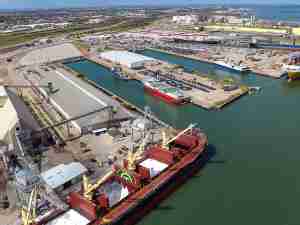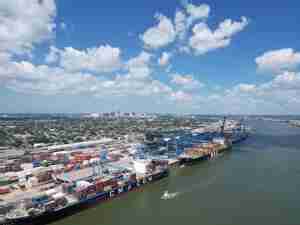Anglo American Plc’s South African iron ore unit has proposed a reorganization that may affect about 490 jobs, as logistics bottlenecks limit its ability to export.
Constraints on the state-owned rail and port infrastructure that Kumba Iron Ore Ltd. relies on to transport the steelmaking material has forced a restructuring, the Johannesburg-based miner said Tuesday. In December, the company reduced production guidance for the coming years.
“The decision to potentially reconfigure our business has not been taken lightly but it is necessary if we are to remain globally competitive to sustain our mines and those who depend on them for the long term,” Chief Executive Officer Mpumi Zikalala said in a statement. Kumba will also review contracts with about 160 service providers.
Kumba’s shares fell as much as 6.2% in Johannesburg trading.
Any job losses would be another setback for the ruling African National Congress as it struggles to revive the economy ahead of key elections later this year. The potential cuts come a day after Anglo’s platinum mining unit announced a restructuring that puts 3,700 jobs at risk across its South African operations.
Toward the end of 2023, Kumba said it had slowed production as iron ore stockpiles at its mines had reached “unsustainable levels.” It’s targeting output of 35 million to 37 million tons over each of the next three years, and has identified cost savings of as much as 3 billion rand ($158 million) in 2024.
Kumba expects the transport problems to persist over the medium term, although it’s working with the government and state freight rail company, Transnet SOC Ltd., to introduce private sector participation.
“We believe that this should be through concessioning for the iron ore export channel but the devil is in the detail,” the CEO said on a call.
Despite the challenges, higher iron ore prices helped boost Kumba’s profit by 52% to 29.8 billion rand last year.
Anglo unveiled plans late last year to cut its production forecasts not just for iron ore in South Africa but across its global portfolio in coal, copper, nickel and platinum-group metals.








